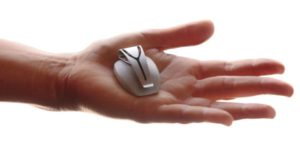Tech State of Mind- Mental Health Technology

Mental Health Awareness
Since 1949, the United States has recognized Mental Health Awareness Month in May. Over the last few months, I’m sure many of us have been concerned about our mental health just as much as our physical health. I can say personally that I have been feeling a bit anxious in this new world.
Depression and anxiety disorders left untreated can affect people’s education and livelihood. Together they’re estimated to cost the global economy $1 trillion each year in lost productivity. The CDC reports that 50% of us will experience some type of mental illness at some point in our lives.
A large percentage of IT workers already feel stressed on a regular basis. Now, IT professionals are under a new sense of pressure. They have had to move work forces to remote settings and handle an increase in tech support due to the is move. On top of that, there is an increase in security risks. Like the rest of America, they are under the new stresses that have come with this new normal.
Tech Therapy
The coronavirus is driving a mental health crisis for many, but tech can help tackle it. One technology gaining in availability is telehealth services. Not only used to check physical symptoms with your doctor, one can contact mental health professionals via phone, video conference or chat. Online platforms like TalkSpace and BetterHelp help those with depression, anxiety, PTSD, and other conditions remotely.
This is also beneficial for rural America. Many must travel hundreds of miles to get to a nearby hospital or clinic. Telehealth enables help for this segment of America. Many vets live in more rural areas and must travel an average 25 to 50 miles for healthcare. The US Department of Veterans Affairs has nearly 20,000 telehealth visits daily, an 800% increase since before the pandemic.
AI Help
There are AI based applications available that serve as chat therapists.
Woebot is one example. It is an AI-based chatbot that provides cognitive behavioral therapy. It monitors daily, one-on-one interactions with users using natural language processing. Then, it delivers a personalized version of therapy to the user.
is one example. It is an AI-based chatbot that provides cognitive behavioral therapy. It monitors daily, one-on-one interactions with users using natural language processing. Then, it delivers a personalized version of therapy to the user.
The University of Colorado recently used machine learning AI to develop changes in speech. Subtle differences in speech can suggest a mental health decline. Shifts in tone or pace can indicate mania or schizophrenia. Memory loss can also be a symptom of cognitive and/or mental health problems.
Game Time
Even though we may be trying to limit screen time, video games can aid in elevating someone’s mood. They allow users to escape and immerse themselves into another world. Some video games main purpose is treating a mental health condition.
One example is Endeavor by Akili. This helps children who have ADHD. It brings together world-class neuroscience with the latest technology and video game entertainment. It’s a digital medicine not delivered through a pill or syringe but through a video game experience.
Virtual Reality or VR is another tool. Explore Deep is a meditative virtual reality controlled by breathing. It serves as an intervention for those with anxiety. Players navigate through a serene and poetic underwater world. Movement is controlled by slow, deep breathing. It uses a self-explorative, visually stunning underwater seascape and biofeedback mechanics.
Wearable Technology
Wearable technology helps to monitor sleep, physical activity and more. It is also a key tool to detect possible disorders in the first phase. The applications collect information and evaluate the activity of the user through biomarkers.
One device, TouchPoint is a neuroscientific wearable that is placed on each wrist in the morning or at night to induce the boy to calm before going to sleep. It’s uses include before, during or after a stressful situation. It reduces 70% of someone’s stress in thirty seconds.
 Another example is Spire. It is a wearable device that works with a smartphone application that tracks one’s breathing. This helps to reduce stress. The device measures your breath via the expansion and contraction of your torso. Then, it analyzes and categorizes your breathing as calm, tense, or focused. It sends an alert to you if you need to reset your breath.
Another example is Spire. It is a wearable device that works with a smartphone application that tracks one’s breathing. This helps to reduce stress. The device measures your breath via the expansion and contraction of your torso. Then, it analyzes and categorizes your breathing as calm, tense, or focused. It sends an alert to you if you need to reset your breath.
What Can you Do?
These are strange times that we are all in right now. What can you do to help your mental state? First, create reasonable expectations for yourself, your managers and your coworkers.
Understand that your productivity won’t necessarily be the same. Don’t beat yourself up and remember to be kind to yourself and others. Maintain social work connections by doing things like check-in phone calls or virtual happy hours.
Try some stress-reducing techniques such as yoga, meditation or other mindfulness practices. Start a new hobby or learn a new skill that may fulfill your life in new ways. Make sure you take breaks during the day. Staring at a screen for eight plus hours is not a recommended practice. Make sure to take regular breaks to stretch, walk around the block or get a healthy snack.
As a company, communication is key. Businesses should share resources on mental health assistance that is available for employees. At the same time, don’t overwhelm employees with information. Provide regular concise communication and address concerns weighing on employees.
How Can Zunesis Help?
Zunesis wants to help ease some of the stress felt by IT Professionals at this time. We have a wide variety of assessments to look over your current infrastructure. We also offer a Customer Connect program to allow for a free look into an IT issue at your company.
Categories
Search
Blog Categories
Related Resources
Archives
- July 2024
- June 2024
- May 2024
- April 2024
- March 2024
- January 2024
- October 2023
- September 2023
- August 2023
- July 2023
- June 2023
- May 2023
- April 2023
- March 2023
- February 2023
- January 2023
- October 2022
- July 2022
- June 2022
- May 2022
- April 2022
- March 2022
- February 2022
- January 2022
- December 2021
- November 2021
- October 2021
- September 2021
- August 2021
- July 2021
- June 2021
- May 2021
- April 2021
- March 2021
- February 2021
- January 2021
- December 2020
- November 2020
- October 2020
- September 2020
- August 2020
- July 2020
- June 2020
- May 2020
- April 2020
- March 2020
- February 2020
- January 2020
- December 2019
- November 2019
- October 2019
- September 2019
- August 2019
- July 2019
- June 2019
- May 2019
- April 2019
- March 2019
- February 2019
- January 2019
- December 2018
- November 2018
- October 2018
- September 2018
- August 2018
- July 2018
- June 2018
- May 2018
- April 2018
- March 2018
- February 2018
- January 2018
- December 2017
- November 2017
- October 2017
- September 2017
- August 2017
- July 2017
- June 2017
- May 2017
- April 2017
- March 2017
- February 2017
- January 2017
- December 2016
- November 2016
- October 2016
- September 2016
- August 2016
- July 2016
- June 2016
- May 2016
- March 2016
- February 2016
- January 2016
- December 2015
- October 2015
- September 2015
- August 2015
- July 2015
- June 2015
- May 2015
- April 2015
- March 2015
- February 2015
- January 2014
- February 2013




